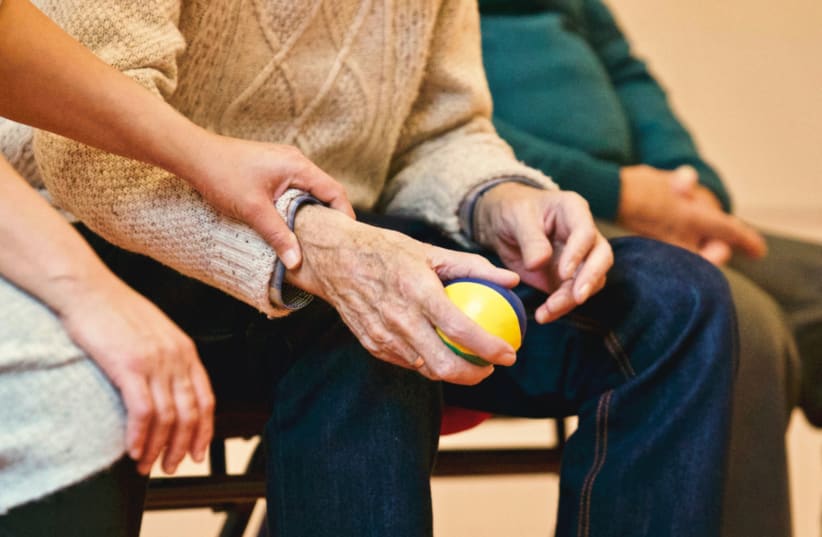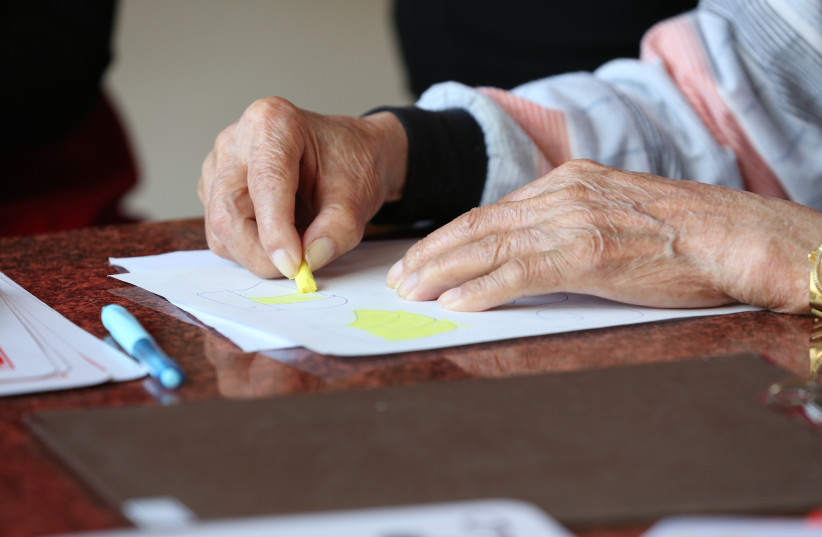Family members of dementia and Alzheimer's patients face an unimaginably difficult reality in which they find themselves providing and/or supervising intensive care 24/7.
Caring for a relative suffering from dementia causes the entire family to change their lifestyle, when the burden of care rests mostly on the shoulders of close family members, especially women.
Alzheimer's disease changes the personality and behavior of someone who was once charitable and loving. Although they are difficult and abrasive, carers and healthy family relatives need to be understanding and inclusive. This will help the cognitively ill person, and will change, to some extent, our feelings as well during treatment.
Here are tools to help you in this complex struggle:
Try not to react critically
Elderly people with dementia are neither crazy nor lazy. They say normal things and do normal things, all things considered.
If they did or said things with the intention of annoying you, they probably had a different diagnosis.
Some things can't be changed
The reality of dementia patients is different from yours, and you can't change that. You can't control the disease. You can only control your reaction to it.
Their "disability" is memory loss
They don't remember, and won't remember that they can't remember. They will ask the same question over and over, believing it's the first time they're asking.
They don't hide but rather protect things by hiding them in a safe place
This is due to anxiety or boredom. Sometimes they feel that something is missing when they have memories of the distant past.
Don't take accusations of theft personally. Observe and learn where they hide their belongings, which will prevent panic attacks and false accusations.
They're afraid
Elderly people with dementia experience many losses as the disease progresses. We all feel anxious when something gets lost and we can't find it for a long time. This is the daily experience of dementia patients.
They're anxious most of the time and each person will express anxiety differently. People can be passive, uncooperative, hostile, angry, and/or agitated. They may swear a blue streak or lash out. All of these behaviors will be expressed at different times. Anxiety will force them to follow you everywhere. Contact your doctor and ask about appropriate drug treatment.
Get their full attention
When you try to talk to an elderly person with dementia, neutralize the environmental noises by turning off the TV and radio, closing the door, etc. Before you start talking, call the person's name and state who you are, even if you're a daughter or son. Sit opposite so that the patient can see you easily and not behind their back, maintaining eye contact.
They don't make up stories
Dementia patients experience reality in a different and sometimes threatening way. How not to react: don't dismiss feelings or try to correct them even if what they say sounds strange and even absurd to you. How to respond? Try to understand what's bothering your relative, respond to feelings in an empathetic way, be calm and provide a distraction.
For example: An elderly person who expresses anxiety that someone is trying to steal money needs empathy and protection. We will say that we fully understand how unpleasant and even scary it is when someone tries to steal from them, we'll offer reassurance that this won't happen and provide distraction with an easy activity by asking for help with light kitchen work such as drying dishes.
How do you prevent an aggressive reaction?
Don't try to convince, don't argue, confront or criticize, don't remind people with dementia about the tendency to forget, and don't ask questions about the last few days as short-term memory is impaired. Already in the initial stages of the disease, and as it progresses, the ability to concentrate and learn is impaired.
We cannot "educate" an elderly person with dementia. We can only go with the flow so our relative might settle down and we can maintain our strength for this rough life period.
Put yourself in their place for a moment
Try to hear through their ears, see through their eyes and feel through their hearts. Try to understand what they have trouble expressing.
If the person gets confused and needs help with finding words, offer options for the answer, make the conversation empathetic and inclusive. This helps people relax and enables them to talk.
Don't lose your sense of humor
Try to treat the situation with humor, even make a little fun of yourself. Remind your relative of a funny incident from the past, tell a good joke and laugh together. Laughter releases endorphins, the natural "happiness" hormones in the human body.
Get help
Day centers for the cognitively ill operate throughout the country. Check if there's one in your area. They'll receive treatment and this will give the family a break.
Day centers are a community service designed for adults living at home who want a community-social framework that provides a variety of services.
Those entitled to nursing benefits from the National Insurance Institute can convert their eligibility to receive personal nursing care services at home to daycare. Elderly people in these centers spend the day in varied activities in a program suitable for their age and health condition, thus enjoying company and care at the same time.
Vicky Nonny is a social worker specializing in the care of people with dementia who works for the Meitav association.

